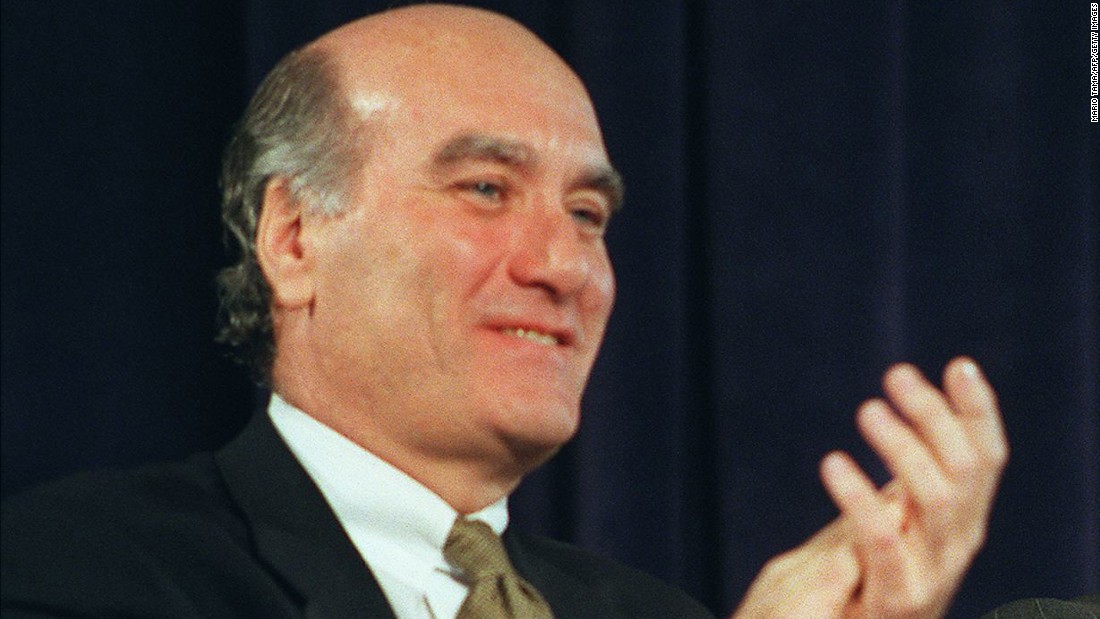
Intrigued by the idea of another Daley leading Chicago --- Richard J. Daley was mayor from 1955-1976 and his son, Richard M. Daley, was mayor from 1989-2011 -- I reached out to the longtime Chicago Tribune political reporter Rick Pearson for more perspective on the race.
Our conversation, conducted via email and lightly edited for flow, is below.
Cillizza: Let's start with why the mayor's office is open: Why is Rahm leaving? Was he in danger of losing?
Pearson: Rahm Emanuel is a smart politician, and he knew his time had come.
Deep anger still exists in the African-American community over the 2014 killing of Laquan McDonald, a black teen, by white police officer Jason Van Dyke. Video of the shooting wasn't released by the city until after Emanuel's 2015 re-election. Van Dyke was subsequently tried and convicted of second-degree murder and aggravated battery with a firearm.
The African-American community is a key voting demographic, and Emanuel's association with President Barack Obama, serving as his first chief of staff, helped him win black votes. No such goodwill exists this time.
Additionally, the city faces some crushing financial hurdles, namely with a sizable pension debt. Emanuel has been forced to raise a variety of taxes to cope. Tax fatigue has set in among its residents.
I would never say Emanuel couldn't win. But even with his vast array of political smarts, the odds were heavily against him.
Cillizza: At the start of the race, what was the conventional wisdom about who the frontrunners were?
Pearson: Emanuel announced in September that he wouldn't seek a third term. But a contest was already developing before that. After Emanuel's announcement, a scramble began that led to the current 14 candidates in the race.
At that point, the early favorites included Toni Preckwinkle, a former alderman and the current Cook County Board president who also would become Cook County Democratic chair. Susana Mendoza was running for re-election last November as state comptroller, a race she ultimately won, but let it be known she'd be a mayoral candidate.
The contest among two experienced women seemed an early likely scenario, though political races rarely end up where they began.
CIllizza: This is a city that has been ruled by Daleys for the better part of the last seven decades. When did Bill Daley emerge as a candidate? And is his last name the key to his rise?
Pearson: A few months ago, Bill Daley was viewed as an unlikely choice and would have to fight perceived Daley fatigue as the son and brother of two mayors.
But Daley became the best-funded candidate in the race, with more than $8.5 million, and blanketed the TV airwaves. He pointed out he had worked as Bill Clinton's Commerce secretary and Obama's chief of staff while also trying to make the case he was his own man, not responsible for the failures of his brother or the past, and that he should not be viewed as a political insider but an outsider.
Daley's name is certainly part of his rise. Older voters still view the Daleys as having run a stable city over the decades and they are a dedicated voting demographic. At the same time, the city's business community has gravitated in part to Daley, helping finance his campaign. Plus, there's still a Daley political apparatus around for Election Day. But Daley has talked about curbing public employee pensions -- something that actually would likely be found unconstitutional in Illinois. That has unions attacking him, and scattered to other candidates like Preckwinkle and Mendoza.
Cillizza: It's a big field. What happens if no one gets a majority?
Pearson: In the mid-1990s, when Republicans controlled the Illinois legislature and the governor's office, the state made Chicago municipal election a non-partisan election in hopes a Republican would have a chance -- something that never materialized. Along with the change, it instituted a run-off provision. If no one gets 50% plus one vote today -- something that is highly unlikely in this field -- the top two vote-getters are pitted in a runoff election on April 2.
The large field of candidates has the electorate split among [the 14 candidates] in early polling. There's no runaway leader here and anything can happen. Remember as well that we're coming off a brutal and expensive campaign for governor last November that filled TVs with ads for more than a year. There may well be some voter fatigue and without significant signs of enthusiasm the turnout may mirror the 34% of four years ago.
Cillizza: Finish this sentence: "If Bill Daley wins the Chicago mayor's race, the message we should draw from that victory is __________." Now, explain.
Pearson: I would say again "stability."
For some voters, Daley is like a comfort food. The family is a known quantity. They know what they're getting. It may be bland, it may not always be served up with great flavor, but they know what will be on the food tray when it gets passed out.
Bagikan Berita Ini















0 Response to "How the Daley dynasty could return to power in Chicago"
Post a Comment